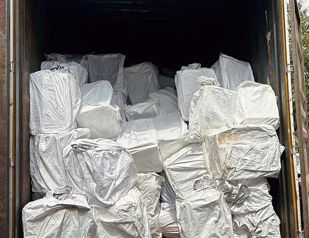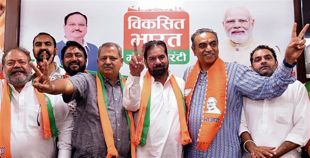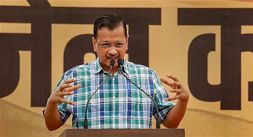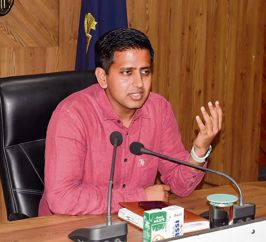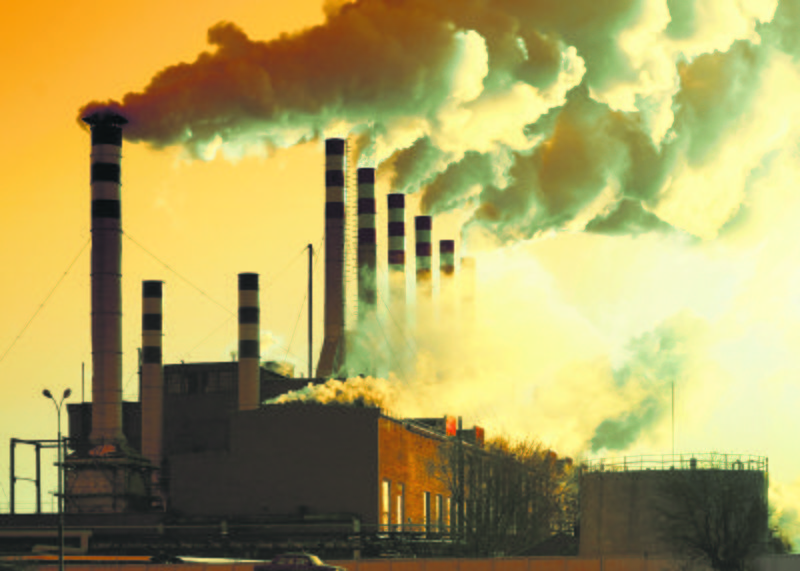
Photo for representational purpose only. - File photo
Sarabjit Arjan Singh
Former Member, Central Administrative Tribunal
The Tribune Debate: Phase-out of fossil fuels
THE acknowledgment of the need to move away from fossil fuels to limit the global temperature rise to less than 1.5°C above the pre-industrial levels came with the pact reached at the 2021 United Nations climate change conference (COP26) in Glasgow, Scotland. However, the agreement mostly focused on reducing the use of coal. As a consequence, it failed to address the need for reducing the use of other fossil fuels, especially oil and gas, essential for realising the 1.5°C goal. A recent research suggests that by 2050, 60 per cent fossil methane gas and oil and 89 per cent of coal must remain unextracted for the world to stay within the ‘1.5°C temperature increase’ carbon budget.
Solar thermal fuels have the potential of completely changing the way we make and use energy and are a possible means for the transition from fossil fuels.
At the ongoing COP28 in Dubai, which began on November 30 and is scheduled to conclude on December 12, the world has advanced beyond the agreements made during COP26 by acknowledging that the looming threat of climate change required drastic measures. It was recognised that completely eliminating the use of fossil fuels was essential to meet the Paris Agreement’s goal of limiting global warming to 1.5°C. United Nations Secretary-General Antonio Guterres laid stress on the necessity of eliminating oil and gas use, expressing it as “Not reduce, not abate. Phase out.”
Phasing out fossil fuels would require huge investments in renewable energy generation and new technologies. It is an open question if the world will be able to rally the resources. Interestingly, while India and China signalled support for tripling renewable energy use by 2030, neither confirmed that it will back the Paris pledge of reducing fossil fuel use. What makes getting away from burning fossil fuels such a daunting task is that they are energy-dense.
About 300 years ago, we learnt to convert energy released by burning fossil fuels to turn a wheel that enabled us to use fossil fuels to power factories, farms, transportation systems and homes. This changed the world in every imaginable way.
To understand why fossil fuels were preferred, we need to have an idea of the value of energy. We can buy a litre of petrol for Rs 100, and it provides 32 million joules of energy. It would take a person four weeks of working eight hours a day for an output of 32 million joules. This leads to an amazing reduction in the cost of energy. For petrol, we pay Rs 100 for this amount of energy. For a person, we would need to pay
Rs 11,840 (at Rs 80 per hour), which is approximately 118 times more than for petrol. In comparison, fossil fuels are virtually ‘free energy’.
This propelled scientists and engineers to design new ways to extract energy from the ground or develop means to use the energy in our factories, farms, etc. This ultra-cheap energy, however, resulted in the release of unprecedented amounts of toxic chemicals into our biosphere. It also led to a precarious lack of diversity in our agriculture and triggered numerous conflicts. Many more are likely to arise due to the heterogeneous distribution of fossil fuels and key raw materials. As a result, we have arrived at a critical point in the earth’s history.
We need to get away from burning carbon and rely on alternative and sustainable energy resources. It is a formidable task to find a way to fully replace fossil fuels. What we need is a game-changer because a slightly better version of our existing technologies will not be able to do it. Unlike many other revolutions, the revolution that must occur in energy will almost entirely centre on our ability to carefully design and manufacture completely new materials that have five to 10 times better efficiency or lower costs compared to current ones. Prof Jeffrey C Grossman of the Tata Centre MIT Department of Material Science and Engineering is developing these materials; he calls them solar thermal fuels.
Fossil fuels release energy that originally came from the sun nearly 200 million years ago. Solar thermal fuels try to replicate this process by directly storing sunlight through changes in shape. Unlike fossil fuels, which have to be burnt to generate heat, these materials release heat as molecules revert to their original shape. A catalyst is used to trigger the release of energy. Once the energy has been released, these materials are ready to be recharged by the sun.
Solar thermal fuels have the potential of completely changing the way we make and use energy and are a possible means for the transition from fossil fuels. They carry three clear benefits. Firstly, unlike fossil fuels, they have no byproducts. The material does not combust; it simply cycles back and forth between the charged and uncharged states. Secondly, it is based on the sun, so the source of energy is infinite. And thirdly, it is the only way to use the sun’s heat that is storable and transportable.
Given these advantages, it is not surprising that such fuels were extensively explored in the 1970s but abandoned by the mid-1980s, as the materials available at that time could not withstand recycling and deteriorated with each recharge cycle. However, with the availability of new materials, they are making a comeback, especially due to the imperative of phasing out fossil fuels.
India faces the daunting task of increasing energy availability to uplift people from poverty without increasing dependence on fossil fuels. Solar thermal fuels have the potential to be a transformative energy source.
India should invest in making it a robust technology as fast as possible by supporting the initiatives underway in the country — simply because the future lies in technologies that can use solar energy with the advantages of fossil fuels but without the emission of toxic byproducts.
Join Whatsapp Channel of The Tribune for latest updates.






















